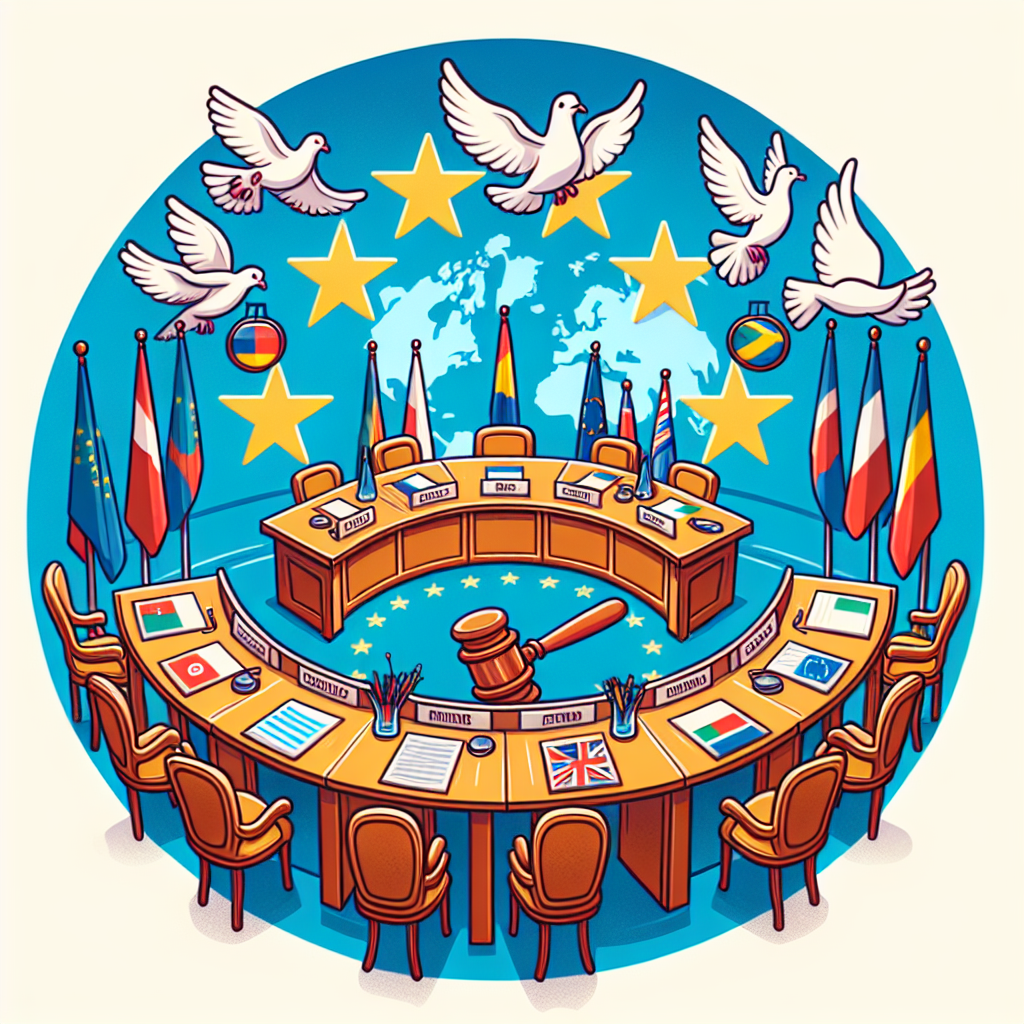EU Tightens Sanctions on Russia: Targeting Shadow Fleet and Hybrid Attacks
The European Union has imposed new sanctions on Russia over its war on Ukraine, targeting Moscow's shadow fleet and hybrid attacks. The measures prohibit reloading of Russian LNG in EU territory and include financial support for Ukraine's defense. Over 50 new individuals and numerous entities are now sanctioned.

- Country:
- Belgium
The European Union has intensified its sanctions on Russia, focusing on Moscow's elusive fleet of tankers that transport liquefied natural gas (LNG) across Europe, as well as targeting companies involved in hybrid attacks.
During a meeting in Luxembourg, where the new sanctions were endorsed, EU foreign ministers also green-lit additional financial support to aid Ukraine's defense. Concerns over escalating Russian hybrid assaults, including alleged election meddling, cyber-attacks, and acts of sabotage, were raised.
To pressure Russia into more expensive energy routes, the EU announced a ban on reloading Russian LNG within its territory destined for third countries. This move affects significant transshipment operations that last year saw 4-6 billion cubic meters of Russian LNG rerouted through European ports.
These measures clamp down on ship-to-ship and ship-to-shore LNG transfers and re-export operations. The sanctions also prohibit new investments in Russian LNG projects. A number of entities, including firms from China, Turkey, and the UAE, are targeted for circumventing EU sanctions or for providing sensitive equipment to Russia.
Furthermore, over 50 officials face asset freezes and travel bans. President Vladimir Putin, Foreign Minister Sergey Lavrov, and numerous lawmakers and oligarchs are already among the 1,700 individuals listed by the EU. Entities previously sanctioned include those in the military, aviation, shipbuilding, and machinery sectors, along with political parties and banks.
EU foreign policy chief Josep Borrell emphasized the importance of supporting Ukraine, announcing an agreement to provide €1.4 billion in July and an additional €1 billion by year-end. The funds will aid Ukraine's air defense and ammunition stocks and bolster its defense industry, sourced from profits of frozen Russian assets in Europe.
European ministers, like Finland's Elina Valtonen, highlighted the various actions Russia has taken to destabilize Europe, including exploiting migrants. NATO has also warned of Russian hostile activities against its member countries, labeling them a security threat.
The EU has also sanctioned individuals linked to cyber-espionage operations, notably the "Callisto group," and groups involved in cyber hacking activities like "Armageddon hacker" and "Wizard Spider."
(This story has not been edited by Devdiscourse staff and is auto-generated from a syndicated feed.)
ALSO READ
Rouble Steadies Amid US Sanctions on Moscow Exchange
Russian President Vladimir Putin says Moscow and Pyongyang will sign an agreement to bolster their ties, reports AP.
Cyclone Damages Bangladesh's LNG Import Terminal, Forcing Supply Cancellations
Cyclone Halts Bangladesh's LNG Imports: Petrobangla and Summit LNG Respond
Putin Eager for Moscow Summit with Kim Jong Un










